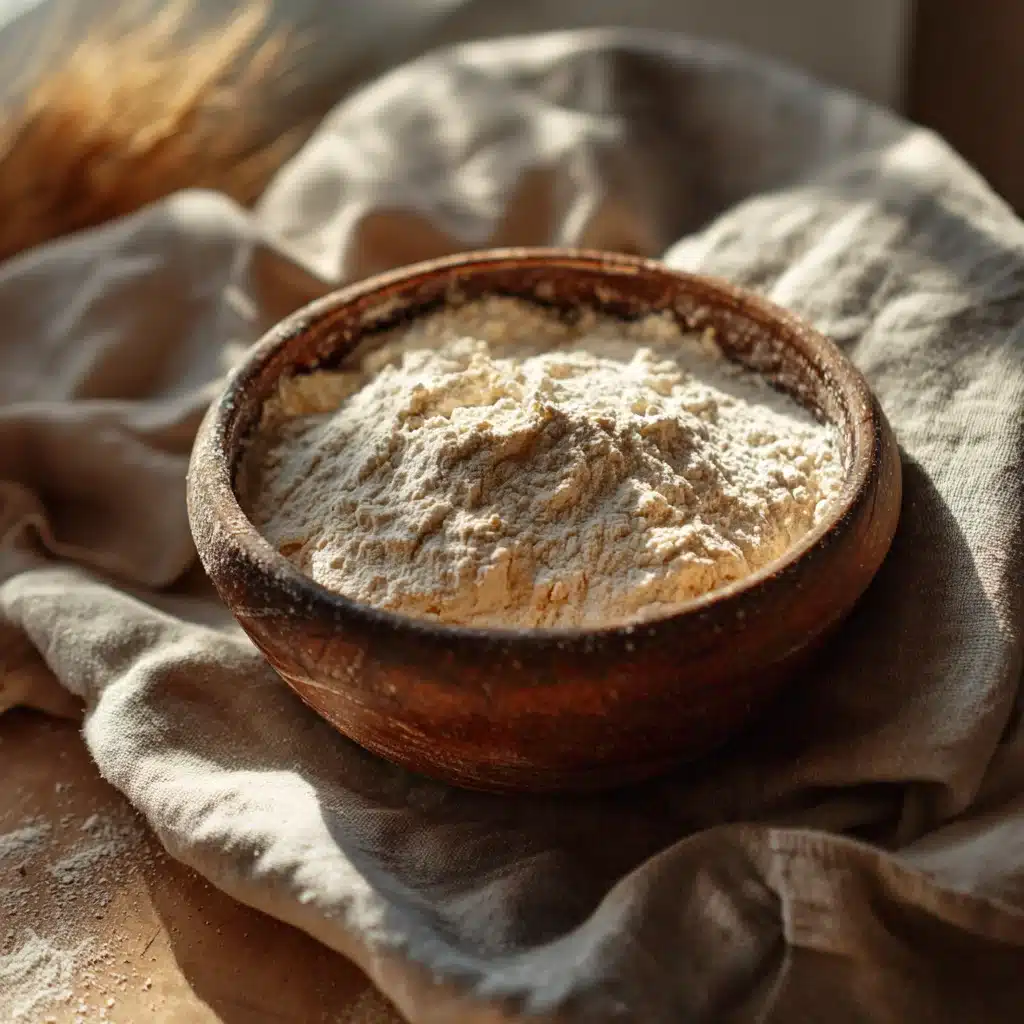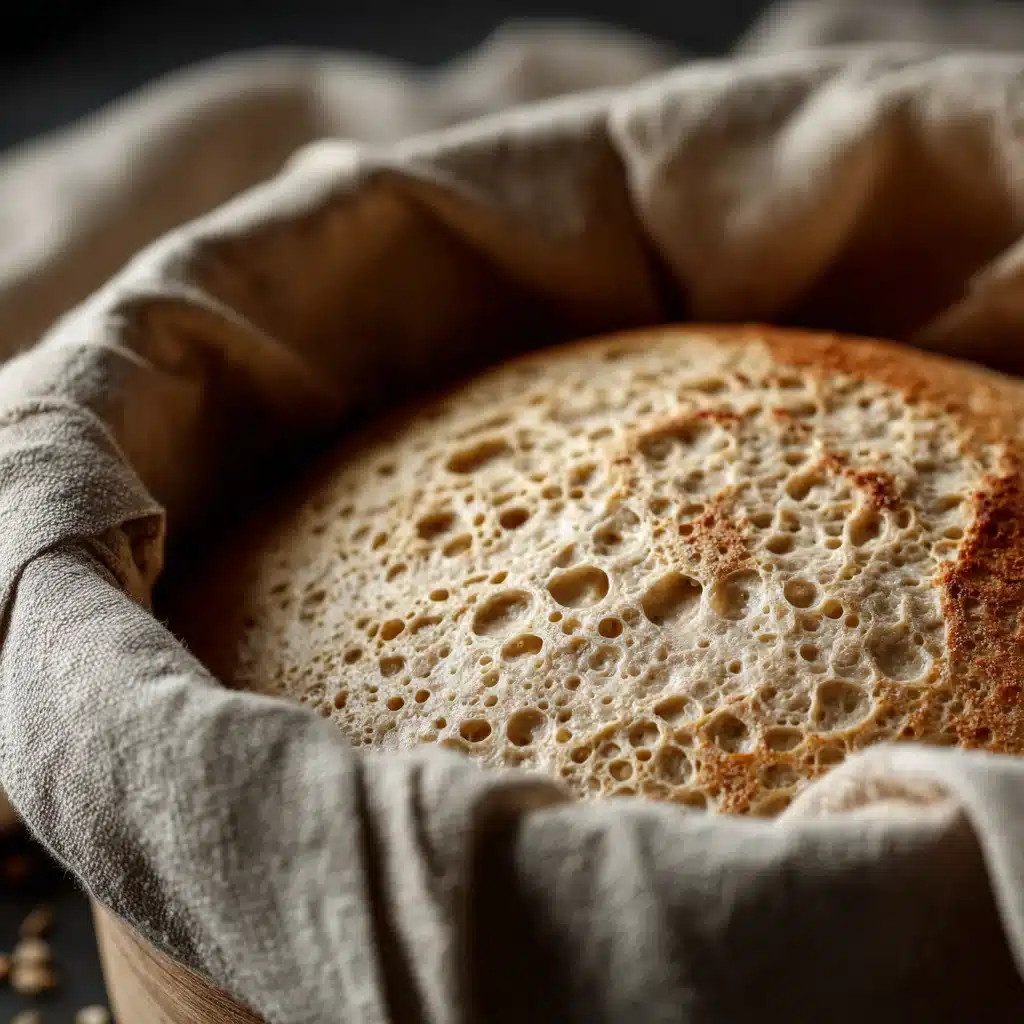Sourdough bread isn’t just about flavor, it’s a fermentation marvel. For cancer patients navigating treatment, nutrition can feel overwhelming. That’s why this article explores the intersection of sourdough bread and cancer. From its natural probiotics to lower glycemic impact, we’ll break down what science and tradition say about sourdough’s potential benefits or risks. You’ll learn whether it’s anti-inflammatory, how it affects digestion, and what alternatives might be better. Let’s rise to the facts, one slice at a time.
The Story & Intro , Why Sourdough Bread and Cancer Deserve a Closer Look
Exploring the healing loaf from my Mendocino kitchen
A Baker’s Journey Meets a Life Question
I remember the day someone at one of my sourdough workshops asked me, “Is sourdough bread good for cancer patients?” It stopped me cold. Not because I didn’t have an answer, but because I realized how often we overlook the connection between what we bake and what we battle. That question, about sourdough bread and cancer, set off a new kind of fermentation in my mind.
I started baking sourdough to impress a date. He left. The bread stayed. And over time, it became more than food. It became a ritual. It grounded me in hard moments, and helped others, too. One cancer survivor I baked for said my bread helped settle her gut more than anything she’d tried. That stuck with me. The science behind sourdough bread and cancer isn’t conclusive, but what’s clear is that our guts, and the microbes within, play a major role in how we heal.
So, I dove in. This article unpacks what makes sourdough unique, and whether its naturally fermented nature supports or hinders those going through cancer. The topic of sourdough bread and cancer deserves more than vague opinions, it deserves clarity, backed by both tradition and research.
You’ll also discover related info like the Sourdough Health Benefits Guide and the digestive insight from Sourdough IBS, both essential if you’re thinking about gut health in the cancer recovery process.
Whether you’re baking for yourself or someone you love, learning the truth about sourdough bread and cancer can help you feel more confident in your choices.
Print
- Total Time: 16 hours (including overnight proof)
- Yield: 1 large loaf 1x
Description
This traditional sourdough recipe is easy on digestion, low in sugar, and packed with natural fermentation, perfect for sensitive diets and cancer-conscious kitchens.
Ingredients
500g bread flour (unbleached, organic if possible)
350g filtered water
100g active sourdough starter (fed within 4–6 hours)
10g sea salt
Instructions
1. Mix flour and water in a large bowl and let rest 1 hour (autolyse).
2. Add sourdough starter and salt, then mix well by hand.
3. Cover and let rise for 4–6 hours, folding every 30 minutes.
4. Shape dough into a round and place in a floured banneton basket.
5. Refrigerate overnight (8–12 hours) for slow fermentation.
6. Bake at 475°F in a Dutch oven for 20 min with lid, then 25 min uncovered.
Notes
For cancer patients with sensitive guts, use low-FODMAP flour or whole spelt.
Avoid using store-bought “sourdough flavor” breads which offer no fermentation benefit.
Slice and freeze leftovers for easy portioning.
- Prep Time: 30 minutes
- Cook Time: 45 minutes
- Category: Bread
- Method: Baking
- Cuisine: Traditional
Nutrition
- Serving Size: 1 slice (of 12)
- Calories: 160
- Sugar: 0g
- Sodium: 180mg
- Fat: 0.5g
- Saturated Fat: 0.1g
- Unsaturated Fat: 0.4g
- Trans Fat: 0g
- Carbohydrates: 33g
- Fiber: 2g
- Protein: 5g
- Cholesterol: 0mg
Keywords: sourdough bread and cancer, gut health, cancer diet

Is Sourdough Bread Healthy for Cancer Patients?
Unpacking the science behind sourdough and inflammation
The Role of Fermentation in Cancer Support
When we talk about sourdough bread and cancer, one key element is fermentation. Unlike regular breads made with commercial yeast, sourdough relies on a starter, a mix of flour and water teeming with wild yeast and lactic acid bacteria. These microbes break down gluten and phytic acid, making nutrients more bioavailable. This matters for cancer patients, especially those struggling with nutrient absorption during chemotherapy or radiation.
Lactic acid bacteria, produced during fermentation, have been linked in studies to gut health and immune modulation, two areas that cancer patients often need support in. While sourdough isn’t a miracle food, it may serve as a gentler, more digestible option compared to refined, store-bought breads. It’s worth noting that many patients with treatment-induced gastrointestinal side effects report better tolerance with naturally fermented bread like sourdough.
For those navigating dietary sensitivities, low-FODMAP sourdough options offer an added advantage, reducing bloating and gut stress, crucial factors when your system’s already overwhelmed.
Is Sourdough Bread Anti-Inflammatory or Problematic?
Inflammation is a major factor in both cancer development and healing. So the question arises: is sourdough bread inflammatory? Surprisingly, the opposite may be true. Thanks to the lactic acid and extended fermentation time, sourdough has a lower glycemic index than most breads. That means it’s less likely to spike blood sugar, a known contributor to inflammation.
Also, sourdough’s fermentation process reduces compounds like gluten and lectins, which may trigger inflammation in sensitive individuals. For cancer patients seeking anti-inflammatory foods, sourdough could be a smart swap. Still, not all loaves are equal, look for minimally processed sourdoughs with just flour, water, and salt.
If you’re exploring gluten concerns too, check out this piece on Is Sourdough Bread Gluten-Free for deeper insight.

Disadvantages of Sourdough Bread for Cancer Patients
When the healing loaf might not fit the plan
Potential Drawbacks of Sourdough Bread and Cancer Diets
As nourishing as it can be, sourdough bread and cancer don’t always mix perfectly. Every body, and every diagnosis, is different. One of the biggest challenges for cancer patients is maintaining stable energy levels and managing side effects from treatments. Although sourdough is easier to digest than many commercial breads, it’s still a carbohydrate-heavy food. For those on a low-carb or ketogenic cancer-support diet, even fermented bread may not be suitable.
Another concern is portion control. Sourdough’s tangy flavor and chewy crust make it easy to overeat. But excess carbs, even low-glycemic ones, can still contribute to elevated insulin levels, which some researchers associate with tumor growth. That’s why moderation matters when including sourdough in a therapeutic diet.
Also, not all loaves labeled “sourdough” are real sourdough. Many grocery store versions add vinegar or sour flavoring instead of undergoing true fermentation. These “shortcut breads” don’t offer the gut-friendly bacteria or nutrient benefits of the real thing. So if you’re relying on sourdough for its healing potential, make sure it’s made traditionally, ideally with just flour, water, and salt.
When to Avoid Sourdough Bread Entirely
Certain cancer treatments, especially for gastrointestinal cancers, may cause extreme sensitivity to fiber, acids, or even fermented foods. In those cases, sourdough’s acidic nature could irritate the stomach lining or worsen acid reflux. If that sounds familiar, you might want to consult your doctor or dietitian before reaching for another slice.
Some individuals with celiac disease or severe gluten intolerance, conditions not uncommon in cancer survivors, should also steer clear unless the bread is fully gluten-free. You can explore the gluten question further in Do Sourdough Bread Contain Gluten?.
For extra cautious eaters, gentle versions like low-FODMAP sourdough can sometimes help reduce symptoms without cutting bread completely.
Best Breads for Cancer Patients
Choosing wisely between sourdough and other healing grains
Smart Bread Choices Beyond Sourdough
If you’re wondering what the best bread is for cancer patients, sourdough is a solid option, but it’s not the only one. The relationship between sourdough bread and cancer is largely positive, but sometimes a gentler or more targeted loaf is needed. Whole grain breads made from sprouted grains, for example, offer higher fiber and more micronutrients, which can be helpful for recovery. These are especially useful for patients focused on stabilizing blood sugar, reducing inflammation, and staying regular.
Gluten-free options can also play a role, especially for those dealing with gut irritation. While many gluten-free breads are heavily processed, a few clean-label ones, or naturally leavened gluten-free sourdoughs, can provide the benefits without the risk. The key is minimal ingredients and no added sugars or preservatives. If you’re unsure where to start, sourdough best ways to eat offers tips to integrate it gently into your routine.
Combining Breads with Anti-Cancer Meals
Sometimes, it’s not just about the bread, it’s about what you eat it with. Pairing sourdough with high-quality fats (like olive oil or avocado) and anti-inflammatory toppings (like steamed greens, turmeric hummus, or garlic) can amplify its benefits. If you’re feeling adventurous, try something like garlic sourdough toast for a nutrient-packed snack. Garlic has long been studied for its anti-cancer properties and pairs beautifully with the complex notes of true sourdough.
For breakfast, I often recommend a small slice of sourdough with a poached egg, wilted spinach, and fermented sauerkraut. This balances protein, probiotics, and fiber, all of which support immune health.
Whether you’re in treatment, recovery, or just want to support a loved one, the right bread, sourdough or otherwise, can make meals feel both comforting and supportive. Just remember: food is fuel, but it’s also joy. And in the world of sourdough bread and cancer, both matter.

cancer support.
Conclusion: How Sourdough Fits into Cancer Nutrition
Sourdough bread is more than a rustic, tangy treat. For many cancer patients, it represents a rare balance of nourishment and comfort. When discussing sourdough bread and cancer, the goal isn’t to frame it as a cure, it’s to consider how fermented foods may support healing through gut health, inflammation control, and better nutrient absorption.
The process that makes sourdough unique, slow fermentation with wild yeasts and lactic acid bacteria, can make it easier to digest and gentler on sensitive systems. Compared to commercial loaves, sourdough tends to have fewer additives, a lower glycemic load, and more bioavailable nutrients, all of which are valuable in cancer recovery.
Still, it’s not for everyone. During chemotherapy or digestive distress, even sourdough may need to be avoided. Patients with gluten sensitivity or severe reflux should opt for low-FODMAP or gluten-free versions, which still honor the benefits of fermentation without triggering discomfort. You can learn more in our full guide to low-FODMAP sourdough bread.
When chosen wisely, sourdough bread and cancer diets can complement each other, especially when the bread is made from simple ingredients: flour, water, salt, and time. It’s not about perfection, but presence. A warm slice can ground a meal, offer digestive relief, and, maybe most importantly, bring joy back to the plate.
At my bakery, I’ve seen how people going through treatment respond to these small comforts. In the broader conversation about sourdough bread and cancer, one thing is clear: what we eat shapes how we feel. Choosing foods that work with your body, not against it, is always worth it.
Let that first slice remind you, you’re still allowed to enjoy eating. You’re still allowed to heal deliciously.
Frequently Asked Questions (FAQs)
Is sourdough bread good for cancer patients?
Yes, in many cases. Thanks to its fermentation process, sourdough bread is often easier to digest and less inflammatory than commercial breads. It contains lactic acid bacteria, which may support gut health, an important factor for cancer patients. However, individual tolerance varies depending on treatment and condition.
What are the disadvantages of sourdough bread?
Not all sourdough is created equal. Store-bought versions often skip real fermentation. Plus, sourdough still contains carbs and sometimes gluten, which can be problematic for patients with certain dietary restrictions or sensitivities. Its acidity might also cause discomfort during chemo-related reflux.
What is the best bread for cancer patients?
The best breads are low in added sugars, high in natural fiber, and minimally processed. Traditional sourdough, sprouted grain breads, and low-FODMAP gluten-free loaves are generally good choices. Always check ingredients and consult your care team if you’re unsure.
Is sourdough bread an inflammatory food?
Generally, no. True sourdough is lower on the glycemic index and contains compounds that may reduce inflammation. However, individual responses can differ. Those with autoimmune conditions or severe gut issues should proceed with caution and choose high-quality, slow-fermented loaves.

